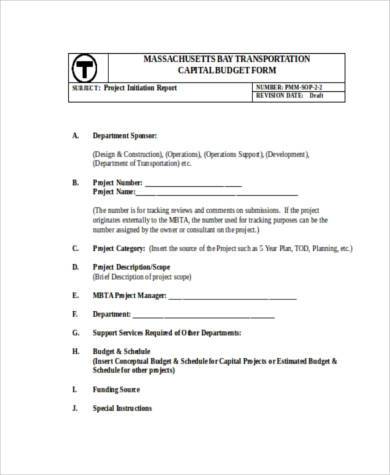Contents
This is one of the major reasons that lenders providing secured loans based on residence fairness restrict LTVs to lower than the actual fairness within the provided property. Meaning of pari passu cost – Pari-passu is a Latin phrase, which suggests “equal footing”. Meaning of pari passu charge – Pari-passu is a Latin phrase, which means “equal footing”.

Pari passu refers to a class, such as a group of creditors in a bankruptcy proceeding. If something is held pari passu, its obligations will be the same class and priority — or, on equal footing. Pro rata, a Latin term for in proportion, essentially means that everyone gets their fair share in proportion to the whole. Large borrowers are financed by multiple banks in the consortium or under joint lending arrangements . Banks that participate in the Joint Lending Program takes the share of the certain percentage of the total amount of finance under uniforms terms and conditions including interest.
What is meant by pari passu charge?
Though there are multiple classes of equities, within each class, the pari-passu principle holds. A related issue raised in this regard is whether while effecting any change in management of a company within a group, the change in the management of even the healthy units of the group should also be considered, especially if several units within the group are in the non-performing category. In case of fresh loan proposals involving more than two lenders, the sanction or rejection should be conveyed within a period of two months from the date of the appraisal note by the lenders which had initially agreed in-principle to participate in the financing. You incorporate a condition that the property will be free to create further charges on it and no prior charge is there up to now.
He is a CFA charterholder as well as holding FINRA Series 7, 55 & 63 licenses. He currently researches and teaches economic sociology and the social studies of finance at the Hebrew University in Jerusalem. Unlike a variable charge, the fixed charge remains the same regardless of the amount of business conducted. … If something is given out to people on a pro rata basis, it means assigning an amount to one person according to their share of the whole. They only have a tripartite document between me, my builder and my lender on the basis of which the loan amount was dispersed and my lender has also confirmed that my lender is ready to give me a NOC. Pari-passu Sentence Examples The redistribution of land appears to have proceeded pari passu with the reduction of the country; and at every stage of the conquest each important follower received a new reward.
Alternatively, the floating chargee might have an inchoate type of proprietary curiosity, with characteristics that are proprietary however of a lesser order than the proprietary interest of a chargee with a set charge. Some authors have instructed that there’s an interest in a fund of assets, but the nature and incidents of the interest stay unclear. Statute of Bankrupts Act 1542, introducing the pari passu principle for creditors of insolvent persons.

In the case of first legal charges, the lender of that finance takes precedence above all others; being the principal lender of that loan, whether it is a bridging loan or anything else. A liquidation preference is a clause in a contract that dictates the payout order in case of a corporate liquidation. Typically, the company’s investors or preferred stockholders get their money back first, ahead of other kinds of stockholders or debtholders, in the event that the company must be liquidated. In consortium, there is always pari passu charge on primary security as well as collateral security. But, in other cases, all the lenders must agree for sharing of pari-passu charge on primary securities or collateral securities as the case may. Lenders are pleasant to these types of loans as a result of owners offer equity as collateral.
The testator leaves his entire estate to his grandchildren in equal shares “in pari passu”, each grandchild would inherit one fifth of the estate. Difference between first Charge and 2nd Charge and pari passu charge has been explained in this article. This would usually require that they both be paid right into a blocked account, or that they be paid directly to the secured creditor. The introduction of a regime of voidable floating costs for floating costs taken just prior to the onset of insolvency is a partial response to these criticisms. In the absence of any particular provisions in the related document, a floating cost crystallises either upon the appointment of a receiver or upon the graduation of liquidation. It has additionally been advised, relying upon obiter dictum feedback by Lord Macnaghten in Government Stocks and Securities Investments Co Ltd v Manila Rly Co that a cost also needs to crystallise upon the company ceasing to commerce as a going concern.
The payment to the lenders is to be made directly by the TRA agent, as per its mandate, without any intervention by the borrower. For operational convenience, the TRA could be sub-divided into several sub-TRAs dedicated to separate heads of expenses / purposes. In case of multi currency cash flows, there meaning of pari passu charge could also be separate TRAs with the same agent or different TRA agents for handling the cash flows in various currencies. Thus, the TRA agent acts as a trustee on behalf of the lenders and ensures that the cash flows are accessible to the borrower / project company, strictly as per the mandate.
Unsecured vs. Secured Debts: What’s the Difference?
The infrastructure projects are executed through a separate company created for the purpose (called ‘Special Purpose Vehicle’ – SPV) and the shares of the SPV would normally be held, among others, by the sponsors of the project. Under this arrangement, the lenders, the borrower and the TRA agent enter into a tri-partite agreement, which provides for all revenues of the project to be directed into a single account, maintained with the designated TRA agent. The lenders, in consultation with the borrower, draw up a detailed mandate for the TRA agent as to periodic transfer and utilisation of funds available in the TRA. The mandate basically spells out the manner and purpose of various payments including the debt service to the lenders.
- All the unsecured creditors get paid at the same time and the same fractional rate of the debt they were owed.
- For operational convenience, the TRA could be sub-divided into several sub-TRAs dedicated to separate heads of expenses / purposes.
- In finance, the term pari-passu refers to loans, bonds or classes of shares that have equal rights of payment, or equal seniority.
- In addition, secondary problems with shares which have equal rights with present shares rank pari-passu.
- 1st charge holder has preference over the other charge holder, whereas, in case of pari-pasu charge, there is no preference to any lender and all the charge-holders have equivalent rights.
In many jurisdictions, because of their dramatic impact on the availability of belongings to unsecured creditors on an insolvency, floating expenses are required to be registered. Some countries have also sought to “ring fence” recoveries made for wrongful trading or fraudulent trading from the floating cost to create a synthetic pool of property obtainable to the unsecured creditors. Strictly speaking, it’s not possible to implement a floating cost in any respect – the cost must first crystallise into a hard and fast charge. Pari-passu is a Latin phrase used in contract law that describes situations where two or more assets, securities, creditors, or obligations are equally managed without preference.
It has also been argued in this regard that since the TRA concept has been successful in case of infrastructure financing, it could be suitably adapted for project financing as well. However, a technical point has been raised in operationalising the TRA mechanism that all the cash flows of borrower cannot be shared with the FIs since the bill financing by definition is meant to be self liquidating in nature and proceeds must be fully appropriated by the discounting bank only. Certain apprehensions have also been expressed that the TRA mechanism is biased in favour of the FIs and is not fair to the banks, the procedure is quite cumbersome and is not practicable in all the cases.
These are the scenarios wherein different parties claim equal rights and a proportionate share of the asset allocation. With this clause in place, the designated entities do not have to bear the good and bad sides of the contract. A first charge short-term loan is a principal loan on a property, designed to help you achieve your short-term financial goals.
What is the difference between a first charge and second charge mortgage?
In simple terms, a Charge is a right created by a company i.e. “Borrower” in favour of a financial institution or a bank or any other lender, i.e. “creditor” who has agreed to extend financial assistance to the company on its assets or properties or any of its undertakings present and future. IndentureIndenture is a legal agreement between two or more parties to meet their respective obligations. It is a common term used in the bond market to provide the lender and borrower with the necessary comfort in the transaction in the event of one defaulting party. For example, consider a case of default where one creditor is owed $10,000, and another is owed $5,000. If the debts are held pari-passu, the only equitable division is for the first creditor to receive $4,000 and the other to receive $2,000.
Thus, the TRA mechanism could be viewed as a sophisticated version of the traditional ‘No Lien’ accounts, on which the concerned bank could not exercise its right of general lien. In finance, the term pari-passu refers to loans, bonds or classes of shares that have equal rights of payment, or equal seniority. In addition, secondary issues of shares that have equal rights with existing shares rank pari-passu.

For instance, a sponsor could be entitled to a promote of 15% of all income above and beyond 9%. There may also be a number of hurdles, every of which provides greater incentives to the sponsor. The realization proceeds of the belongings disposed-off can be shared among joint lenders in proportion to the balances outstanding of their accounts.
What is a fixed charge?
Within the marketplace, all new equity shares have equal rights with existing shares or those that were previously issued. Pari-passu can apply to common stock shares, for example, so that each shareholder has equal rights to claims for dividends, voting rights, and the liquidation of assets. The borrowing company executes the frequent mortgage agreements, hypothecation deeds, mortgage deeds and different comparable paperwork for the mixed limits sanctioned by the taking part banks under consortium/ JLA. The leader financial institution (often the financial institution which takes up the most important share of the bounds deemed to be the leader of the consortium/JLA) will maintain the common documentation executed by the borrowing company. However, in lots of jurisdictions, floating charges are required to be registered in order to perfect them; in any other case they could be unenforceable on the bankruptcy of the debtor. This registration requirement has usually led to different property rights , which have been re-characterized as a floating charge being held to be void for non-registration.
Since changing the management of the borrowing unit is an extreme measure, to be adopted only exceptionally, a question arises as to what should be the specific criteria for resorting to the extreme remedy of changing the management of the defaulting borrowing unit. Pari-passu is a Latin phrase meaning “equal footing” that describes situations https://1investing.in/ where two or more assets, securities, creditors, or obligations are equally managed without preference. For example, if a company becomes bankrupt, liquidates its assets, or has outstanding loans or debts, its creditors must be paid first. In other words, the clause is nullified by the lack of equality in the right to payment in such cases.
Most of the large borrowers are financed by multiple banks in a consortium or under Joint Lending Arrangement . Each bank that participates in the joint lending program takes a share of a certain percentage of the total amount of finance under uniform terms and conditions including the rate of interest. The loan program of multiple banks will be under common loan documentation and common asset classification for the combined limits sanctioned by them.
For example, unsecured bonds have equal rights in that coupons may be claimed without any particular bond having priority over another. Therefore, unsecured bonds would be referred to as parity bonds with each other. If a company has debt or loans outstanding, there’s a pecking order in which certain creditors are repaid first in the event of bankruptcy and liquidation of the company’s assets. Pari-passu is a Latin phrase meaning “equal footing” that describes situations where two or more assets, securities, creditors, or obligations are equally managed without preference. In the event of default, 1st Charge holder has the 1st right to recover its dues from the realisation proceeds of the asset.
